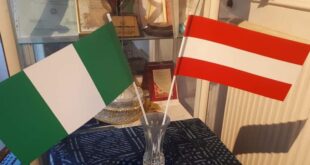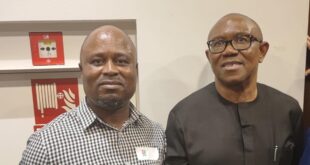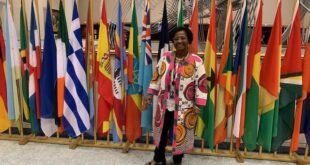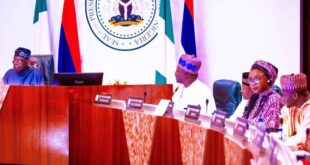About 100 participants turned out on Saturday in Berlin to commemorate the African victims of slave trade, slavery, colonialism and racist violence.
The annual event, which took place for the 8th time in the German capital, demanded an official recognition of the crimes of colonialism and slavery in Africa and the racism that people of African descent suffer across the globe.
The memorial march, organised by the Committee for the Construction of an African Monument in Berlin (das Komitee für die Errichtung eines afrikanischen Denkmals in Berlin or KADIB), emphasized that the crimes committed against Africa in the past left negative legacies which not only affect Africans in Africa but also African descendants everywhere today.
For example, the arbitrary division of Africa into nation states by European imperial powers and the divide-and-rule polices that were used to keep the people from seeing themselves as compatriots during colonial rule have made the task of nation building very difficult after the exit of the colonialists. The result today are wars, conflicts and poverty despite abundant natural and human resources.

Speakers addressed the issues of racism, discrimination and violence to which Black people are often subjected and called for stronger state actions to protect them. Some of the participants also talked about the need for Germany to officially recognise the extermination war against the Herero and Nama of today’s Namibia by German colonial troops from 1904–1908 as genocide and pay reparations to the descendants of the victims. Others also dwelt on police racist violence and lack of justice for the victims in Germany and they railed against institutional racism in the justice system. The issue of looted artworks from Africa in German museums was raised and calls were made to Germany to return the cultural treasures to their rightful owners.
The marchers demanded for the erection of a monument in Berlin in memory of millions of African victims of enslavement, colonialism and racism but also of the Nazi regime.

Speakers after speakers pointed to the central role of Germany in the colonisation of the African continent and why it’s important for the country create a physical structure to reflect that history. The Congo conference, also called the Berlin conference, at which Africa was arbitrarily divided by colonial powers took place in the German capital from 15 November 1884 – 26 February 1885.
The memorial march this year was dedicated to Nelson Mandela, in memory of his struggle against apartheid, racism, colonialism and in his efforts to promote peaceful coexistence of all people in the world.
Femi Awoniyi
 THE AFRICAN COURIER. Reporting Africa and its Diaspora! The African Courier is an international magazine published in Germany to report on Africa and the Diaspora African experience. The first issue of the bimonthly magazine appeared on the newsstands on 15 February 1998. The African Courier is a communication forum for European-African political, economic and cultural exchanges, and a voice for Africa in Europe.
THE AFRICAN COURIER. Reporting Africa and its Diaspora! The African Courier is an international magazine published in Germany to report on Africa and the Diaspora African experience. The first issue of the bimonthly magazine appeared on the newsstands on 15 February 1998. The African Courier is a communication forum for European-African political, economic and cultural exchanges, and a voice for Africa in Europe.





























